Anti-PKC alpha Rabbit pAb (100 μl)
| Reactivity: | M,R |
| Applications: | IHC/IF |
| Host Species: | Rabbit |
| Clonality: | Polyclonal |
| Full Name: | PKC alpha rabbit polyclonal antibody |
Gene Name: | Protein kinase C alpha type |
Synonyms: | PRKCA, AAG6, PKC-alpha, PKCA, PRKACA, protein kinase C alpha, PKCI+/-, PKCalpha |
Immunogen: | Recombinant protein corresponding to Mouse protein kinase C alpha type |
Isotype: | IgG |
Purity: | Affinity purification |
Subcellular location: | Cell membrane, Nucleus, Mitochondrion |
Uniprot ID: |
Product Usage Information
Applications | Species | Dilution | Positive Sample |
IHC/IF | Mouse, Rat | 1: 500-1: 4000 | brain, epencephalon, heart |
Background
Protein kinase C-alpha (PKC-α) is a specific member of the protein kinase family. These enzymes are characterized by their ability to add a phosphate group to other proteins, thus changing their function. PKC-α has been widely studied in the tissues of many organisms including drosophila, xenopus, cow, dog, chicken, human, monkey, mouse, pig, and rabbit. Many studies are currently being conducted investigating the structure, function, and regulation of this enzyme. The most recent investigations concerning this enzyme include its general regulation, hepatic function, and cardiac function.
Images
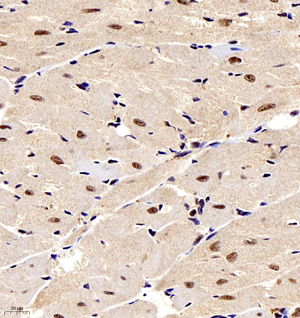 |
Immunohistochemistry of paraffin embedded mouse heart using pkca (GB11649) at dilution of 1:2000 (400x lens) |
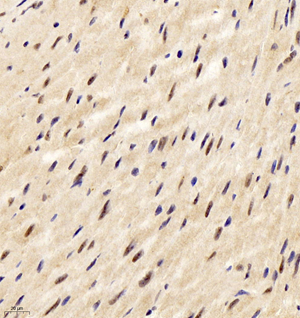 | Immunohistochemistry of paraffin embedded mouse heart using pkca (GB11649) at dilution of 1:2000 (400x lens) |
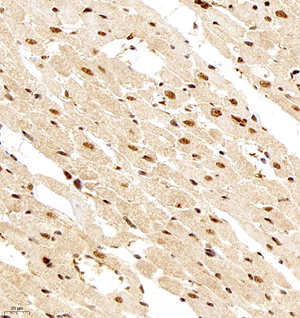 | Immunohistochemistry of paraffin embedded rat heart using pkca (GB11649) at dilution of 1:2000 (400x lens) |
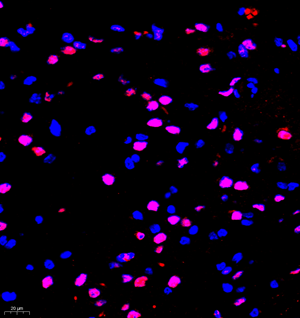 | Immunofluorescence of paraffin embedded mouse brain using pkca (GB11649) at dilution of 1:2000 (400x lens) |
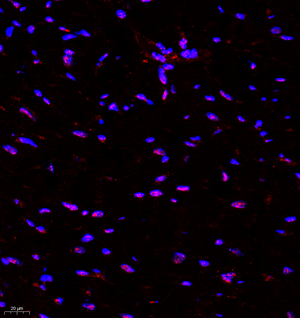 | Immunofluorescence of paraffin embedded mouse heart using pkca (GB11649) at dilution of 1:2000 (400x lens) |
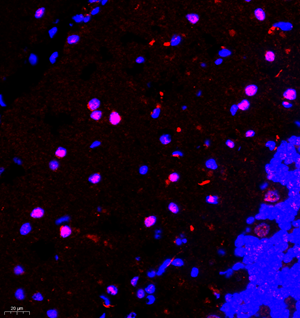 |
Immunofluorescence of paraffin embedded rat epencephalon using pkca (GB11649) at dilution of 1:2000 (400x lens) |
Storage
| Storage | Store at -20°C for one year. Avoid repeated freeze/ thaw cycles. |
| Storage Buffer | PBS with 0.02% sodium azide, 100 μg/ml BSA and 50% glycerol. |
